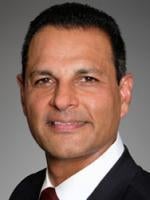The Ninth Circuit’s recent decision in Italian Colors Rest. v. Becerra (“Italian Colors”),[1]upheld an as-applied constitutional challenge to a California law prohibiting retailers from imposing a surcharge on customers paying with a credit card. In a unanimous decision, a three-judge panel for the Ninth Circuit agreed with the district court that an over 30-year-old statutory law violated the merchant plaintiffs’ First Amendment rights by prohibiting them from posting a single “sticker price” and then charging an extra fee for consumers who chose to use a credit card to make payment. The Ninth Circuit thus set the stage for similar challenges pending across the country.
Background
California Civil Code Section 1748.1 prohibits retailers from imposing a surcharge on customers who make payments with credit cards, but permits retailers to offer discounts for payments by cash or other means (i.e., check or credit card). The law stems from a now lapsed provision in the federal Truth-in-Lending Act (TILA), which prohibited retailers from imposing a charge on a consumer who chose to use a credit card instead of paying with cash. When the federal ban expired in 1984, California and other states passed similar statutes seeking to continue to bar businesses from imposing a surcharge on a customer who uses a credit card instead of other forms of payment.
On March 5, 2015, a group of five California businesses—a restaurant, gas station, dry cleaners, transmission repair business, and web design company—and their respective owners sued the Attorney General of California seeking a declaration that Civil Code Section 1748.1 is unconstitutional and requesting a permanent injunction against its enforcement. Plaintiffs claimed to have paid thousands of dollars in credit card fees each year based on a 2-3% fee per transaction. To account for these fees, the plaintiffs increased the sticker price for their products and some then offered a discount to customers who paid with cash, check, or debit card. Plaintiffs explained that they were prohibited under Section 1784.1 from posting a single sticker price for an item and then charging the consumer a credit card fee to recover their costs. According to the plaintiffs, they would prefer to charge this surcharge for using credit cards rather than offer a discount for cash purchases because their customers would better understand that credit card fees are responsible for a portion of the price. Plaintiffs argued that this prohibition violated their First Amendment rights and was unconstitutionally vague under the Due Process Clause of the Fourteenth Amendment.
The district court agreed with plaintiffs and, on March 25, 2015, declared that Section 1748.1 was an unconstitutional restriction of speech because it was a content-based commercial speech restriction that could not survive intermediate scrutiny.[2] The court permanently enjoined Section 1748.1 from being enforced against plaintiffs and the Attorney General appealed the decision to the Ninth Circuit.
Ninth Circuit Decision
On appeal, the Ninth Circuit disposed of the threshold issue of whether plaintiffs had standing to bring their claim, finding that plaintiffs modified their behavior based on the statute and the threat of enforcement.[3] The court then broke down the remaining inquiry into two questions: 1) whether Section 1748.1 restricts plaintiffs’ commercial speech; and 2) whether Section 1748.1 survives intermediate scrutiny.
The court relied heavily on a recent United States Supreme Court decision in Expressions Hair Design v. Schneiderman (Expressions), which examined a nearly identical New York surcharge statute, in analyzing whether California Civil Code Section 1748.1 regulates commercial speech.[4] In Expressions, the Supreme Court reviewed a Second Circuit ruling that the New York surcharge law did not regulate speech and therefore could not violate the First Amendment. The Supreme Court reversed, concluding that the statute regulated “how sellers may communicate their prices” rather than the prices themselves.[5] The Ninth Circuit noted that the Italian Colors plaintiffs wished to pursue the same course of action in the face of the same law as the plaintiffs in Expressions and, therefore, found that Section 1748.1 also regulates commercial speech.
Once the Ninth Circuit determined that Section 1748.1 was a restriction on commercial speech, the next question was whether it could survive intermediate scrutiny. Under this test, a court must first determine whether the speech is misleading or illegal and, if it is not, then determine whether the state has met its burden of showing that the regulation “directly advances” and is narrowly tailored to the state’s “substantial interest.”[6] Here, the court concluded that the Italian Colors plaintiffs’ desired action—charging more for credit card transactions—was not misleading or illegal because Section 1784.1 already permitted credit card customers to be charged more than cash customers, it just required such charges to be in the form of a discount for cash transactions.[7]
Next, the court concluded that Section 1748.1 did not advance the state’s interest of “promot[ing] the operation of the free market and protect[ing] consumers from deceptive price increases.” In fact, the court found that the statute had the opposite effect. Specifically, by preventing retailers from communicating the cost of credit card usage, their customers were less informed than they would otherwise be regarding why they can receive a discount for cash transactions.[8] Moreover, the court noted that several key exemptions in the statute—including for the state and its subdivisions—indicated that the stated justifications for the statute were illusory. Finally, the court determined that even if the statute advanced California’s asserted interest, it was not narrowly tailored to this interest because preventing consumer deception could be achieved in far more direct ways, such as banning deceptive or misleading surcharges, enforcing other statutes that ban unfair business practices, or requiring retailer to disclose their surcharges both before and at the point of sale.[9]
All told, the Ninth Circuit held that, as applied to the plaintiffs, Section 1748.1 restricted non-misleading commercial speech in a manner that did not directly advance the state’s interest. Therefore, it upheld the district court’s ruling and permanently enjoined enforcement of Civil Code Section 1748.1 against plaintiffs. Although the lower court went further and struck down the law in its entirety, the Ninth Circuit limited its decision to only the plaintiffs in this case.
Moving Forward
The Ninth Circuit’s opinion in Italian Colors appears to be a big win for California businesses, and it may very well be, but Section 1748.1 was just one aspect of a much larger battle regarding surcharge fees that continues to play out across the country. For example, California is one of 10 states that have laws on the books prohibiting credit card surcharges.[10] At least three other such states have faced constitutional challenges similar to the one here, with varying degrees of success.[11] However, as Italian Colors makes clear, the Supreme Court’s 2017 decision in Expressions has likely opened the door to more successful challenges.[12]
In addition, even if the surcharge laws are universally deemed to violate the First Amendment, similar prohibitions could survive as contractual provisions in merchants’ agreements with major credit card companies. While such provisions are being challenged in class action lawsuits,[13] it does not appear imminently likely to result in a ban of such provisions. In an action against American Express, for example, the plaintiff challenged several contractual provisions but actually ignored the provision most closely resembling a surcharge restriction.[14] Moreover, while Visa and MasterCard recently reached a proposed class action settlement in which they agreed to remove surcharge restrictions from their agreements, the settlement was rejected by the Second Circuit.[15] It is unclear whether a similar settlement opportunity is on the horizon in this case or any others.[16] In short, while the Italian Colors decision resolves the statutory surcharge debate within the Ninth Circuit, other courts will still get their chance to analyze the issue from both a statutory and contractual angle going forward.
[1] See Italian Colors Rest. v. Becerra, No. 15-15873, 2018 U.S. App. LEXIS 150 (9th Cir. Jan. 3, 2018).
[2] Italian Colors Rest. v. Harris, 99 F. Supp. 3d 1199 (E.D. Cal. 2015). The district court also found that Section 1748.1 was unconstitutionally vague. This part of the district court’s ruling was not addressed by the Ninth Circuit.
[3] Italian Colors, at 14-19.
[4] 137 S. Ct. 1144 (2017); Italian Colors, at 21-22.
[5] Italian Colors, at 21 (citing Expressions, 137 S. Ct. at 1151).
[6] Id. at 22, 27.
[7] Id. at 24.
[8] Id. at 25-16.
[9] Id. at 28.
[10] Id. at 8.
[11] Dana’s R.R. Supply v. AG, 807 F.3d 1235, 1246 (11th Cir. 2015) (striking down a Florida surcharge statute nearly identical to California’s Section 1748.1 as an unconstitutional abridgment of free speech), cert denied, 137 S. Ct. 1452 (2017); Expressions, 137 S. Ct. 1144 (vacating Second Circuit ruling that New York surcharge statute did not violate the First Amendment because it did not regulate speech and remanding for further proceedings); Rowell v. Pettijohn, 816 F.3d 73 (5th Cir. 2016) (affirming the dismissal of challenge to Texas’ surcharge statute, because it did not implicate the First Amendment’s free-speech protections), overturned by 865 F.3d 237, 238 (5th Cir. 2017) (remanding matter to district court based on Supreme Court decision in Expressions).
[12] Expressions, 137 S. Ct. at 1150-51.
[13] See e.g., id. at 1147-48 (noting that “merchants have brought antitrust challenges to contractual no-surcharge provisions”); In re Payment Card Interchange Fee & Merch. Disc. Antitrust Litig., 827 F.3d 223 (2d Cir. 2016).
[14] United States v. Am. Express Co., 838 F.3d 179, 191 n.38 (2d Cir. 2016) (noting that plaintiffs did not challenge the provisions that “prohibit merchants from imposing fees when accepting Amex cards that are not ‘imposed equally on all Other Payment Products’”).
[15] In re Payment Card Interchange Fee & Merch. Disc. Antitrust Litig., 827 F.3d at 236 (rejecting settlement because of a conflict between Federal Rule of Civil Procedure 23(b)(2) and 23(b)(3) classes, which rendered the representation inadequate). The settlement also had a “most-favored-nation” provision, which prohibited merchants that accepted American Express from taken advantage of the surcharge portion of the settlement agreement. Id. at 230.
[16] See In re Payment Card Interchange Fee & Merch. Disc. Antitrust Litig., No. 05-MD-1720, 2017 U.S. Dist. LEXIS 160045 (E.D.N.Y. Sept. 27, 2017) (seeking to amend complaints after proposed settlement was rejected).




 />i
/>i

